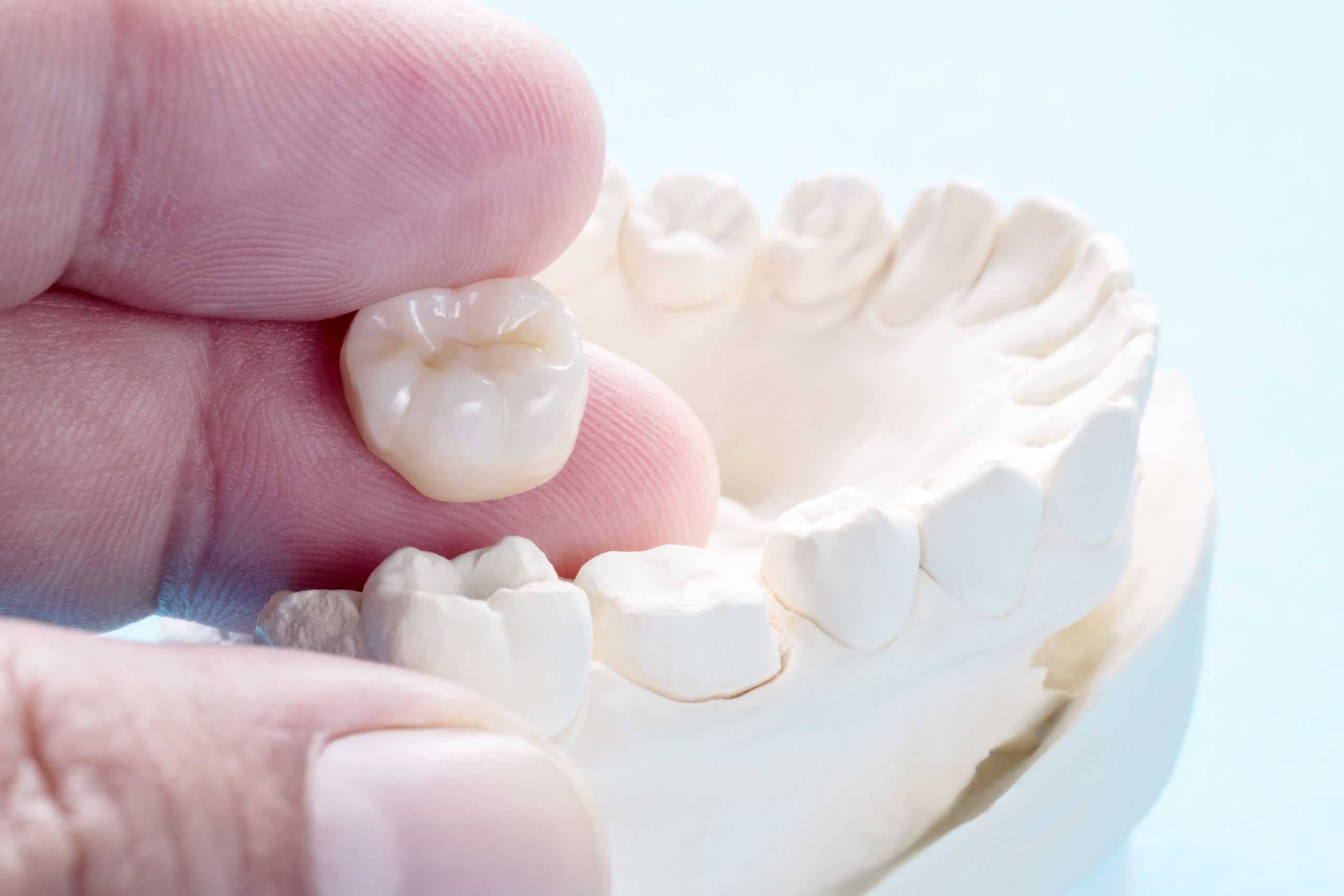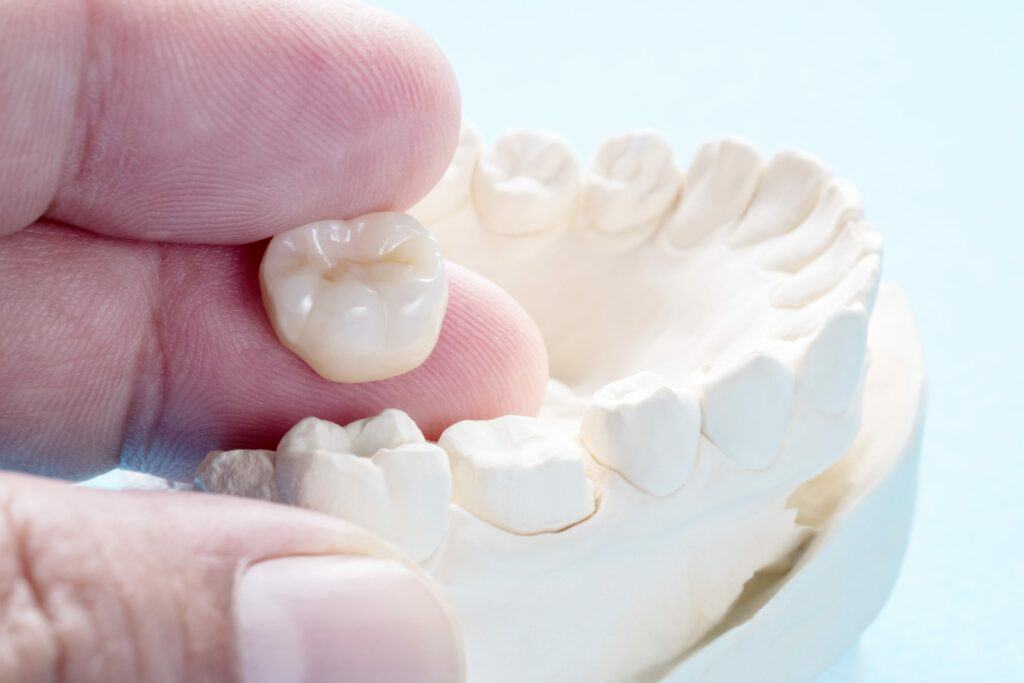Dental Crowns Questions and Answers

A dental crown is a type of cap that will fully cover a real tooth. A crown is made from either metal and porcelain or metal entirely, and it is permanently fixed in your mouth. This treatment may be recommended if you have a damaged or decayed tooth, a broken tooth, or you simply want to improve the appearance of your smile. In this post, we are going to answer some of the most commonly asked questions about dental crowns.
What Is a Dental Crown?
A dental crown is a cap that is in the shape of a tooth. It is placed over your existing tooth, covering it to fully restore your tooth strength, size, and shape, as well as improving the appearance. The crowns fully encase the full portion of the visible tooth.
Reasons for a Dental Crown
There are a number of different reasons why you may need a dental crown. When you visit with Dr. Rinaldi, he will start with a consultation to ensure that this treatment is right for you. Some indications for this procedure are as follows:
- Hold together parts of a tooth that are cracked
- Cover a dental implant
- Hold a dental bridge in place
- Make a cosmetic modification
- Support and cover a tooth with a big filling when there is not much of the tooth remaining
- Restore a tooth that is already broken or a tooth that has been worn down considerably
- Protect a tooth that is weak from breaking, for example, a decayed tooth
Children may also require dental crowns. There are three main cases when a crown may be used on baby teeth. This is usually when a child is at high risk of poor dental health and/or is uncooperative during dental checkups and therefore does not get the proper care. A young child may also get a crown to save a tooth that has been damaged so extensively by decay that the tooth cannot support the filling.
Procedure
The procedure of getting a dental crown depends on whether you have opted for a same-day procedure or a multi-day procedure. We will explain both options.
With traditional crowns, you will have two appointments with your dentist. Firstly, your dentist will assess the tooth and prepare it for the crown. This may involve taking a mold of your tooth and an X-ray. Your dentist then files down and removes part of your tooth’s outer layer. After this, an impression is made of the tooth that has been trimmed and the teeth around it. Your dentist will then place a temporary crown over this tooth to protect it. The impression will then be sent to the laboratory that makes the crown. This step may take as long as a few weeks, but your dentist will be able to give you a more realistic timeline. When the crown has arrived back, your dentist will arrange your second appointment. During this appointment, your dentist will permanently cement the crown to your tooth.
If you decide to proceed with same-day treatment, the step with the temporary crown will be skipped. With this option, digital photos of your mouth will be taken by the dentist. The dentist will then create the crown in the office using the digital scan. You may need to wait a couple of hours for the crown to be created. When the crown is ready, your dentist will cement it into place. This procedure can take between two and four hours.
Benefits of Dental Crowns?
Finally, let’s take a look at the different benefits of dental crowns. There are a lot of reasons why this treatment comes recommended, including the following:
- Enhance the appearance of a tooth by altering its color or shape
- Boost your confidence by improving your smile
- Protect a tooth from further damage
- Support your other surrounding teeth
- To provide you with a long-term solution to oral care, as they tend to last between five and 15 years
As you can see, there are many benefits associated with dental crowns. Couple this with the high success rate of the treatment, and it is not hard to see why it is such a popular choice.
Contact Us About Dental Crowns
Hopefully, you feel like you have a better understanding of dental crowns, and when this sort of treatment is beneficial. If you have any more questions or you are ready to schedule a consultation, give our friendly and experienced team a call at Rinaldi Dental Arts. During your consultation we will be able to assess your teeth, determining whether or not this is the best treatment for you or whether something else would be recommended.
